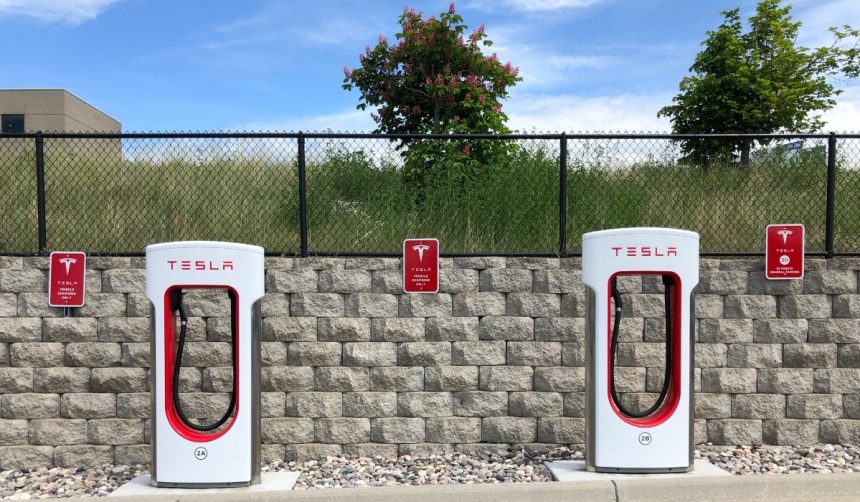Automakers have recently intensified efforts to attract first-time electric vehicle buyers, with Chevrolet introducing its second-generation Bolt EV at a notable price point under $29,000. This move places the Bolt EV among the few electric cars in the U.S. market offering both cost-effectiveness and longer range. Interest in more attainable EVs has grown as economic factors and government incentives shape consumer decisions. Many buyers, facing rising prices elsewhere, are closely watching this shift from both industry giants and traditional car manufacturers. While Tesla continues to dominate headlines with new launches, Chevrolet’s latest offering directly addresses a longstanding demand for affordability in clean transportation.
Competition for lower-priced EVs has grown more pronounced in recent years. Earlier launches from Tesla, like the Standard Model 3 and Model Y, focused on delivering less expensive versions, but their prices remain higher than many potential buyers expected. Other models with similar price tags, such as the Nissan Leaf S, Mini Cooper SE, and Fiat 500e, have struggled to match the Bolt EV’s estimated 255-mile range, often offering less than 150 miles per charge. Historically, the Bolt EV has undergone several updates responding to both regulatory changes and evolving battery technology, making this new generation significant in terms of both price and consumer expectations.
How Does the Second-Generation Bolt EV Stand Out?
The updated Chevrolet Bolt EV is equipped with a 65 kWh LFP battery and offers an EPA-estimated range of 255 miles per charge. The entry-level LT trim starts at $28,995, while the RS trim is priced at $32,000. Noteworthy features include a native NACS port for compatibility with Tesla Superchargers, up to 150 kW charging speeds, bidirectional power up to 9.6 kW, and charging from 10 to 80 percent in only 26 minutes. However, the model no longer supports Apple CarPlay or Android Auto, which could influence tech-focused buyers.
How Have Tesla’s Standard Models Shaped Market Expectations?
Tesla’s introduction of the Model 3 Standard at $36,990 and the Model Y Standard at $39,990 followed broad discussions about the need for more budget-friendly EVs. Despite these releases, Tesla’s “Standard” lineup has received mixed reactions, with some consumers arguing the pricing does not align with their affordability goals. The absence of the $7,500 EV tax credit for some models fueled further criticism regarding value. A Tesla spokesperson commented,
“We are focused on building vehicles that combine price, range, and features for the widest audience.”
What Does Chevrolet Say About Affordable EV Accessibility?
Chevrolet’s new offering aims to fill a gap for buyers deterred by higher-priced EVs. By providing a vehicle with over 250 miles of range and access to established charging networks, Chevrolet positions itself as a strong contender in the sub-$30,000 segment. The company emphasized its focus on mass-market adoption, stating,
“Our goal is to make electric vehicles accessible for all drivers, not just a select few.”
Deliveries for the new Bolt EV are scheduled to begin in early 2026, reflecting Chevrolet’s broader strategy to expand EV availability.
Chevrolet’s decision to bring the second-generation Bolt EV to market at a lower price point indicates a strategic response to both consumer feedback and evolving competition. Unlike competitors that compromise battery range to lower prices, Chevrolet balances cost and practicality, appealing to value-driven buyers interested in shifting to electric vehicles. Features like NACS charging support and competitive charging times reinforce the Bolt EV’s position among more affordable options. While Tesla’s future models may reach even lower prices, current alternatives in this range continue to hold market appeal, particularly for those looking at cost-to-range ratios.
Buyers considering electric vehicles now have more choices in the affordable segment, though only a few models under $30,000 offer substantial range. When deciding, consumers should compare factors such as charging infrastructure compatibility, real-world range, tech features, and anticipated delivery timelines. In a market where price is crucial for first-time EV owners, Chevrolet’s Bolt EV sets a reference point for the blend of affordability and usability others may follow. Staying aware of industry trends and automaker announcements will help buyers make informed decisions in this rapidly shifting segment.
- Chevrolet introduced its second-generation Bolt EV at a sub-$29,000 price.
- The 2026 Bolt EV offers a 255-mile range and competitive charging features.
- Tesla’s “Standard” models remain pricier, prompting criticism from prospective buyers.










